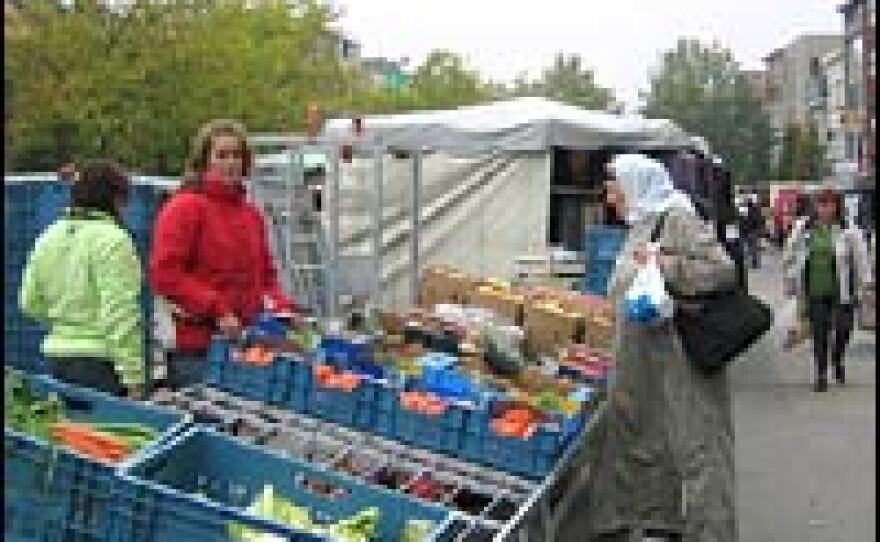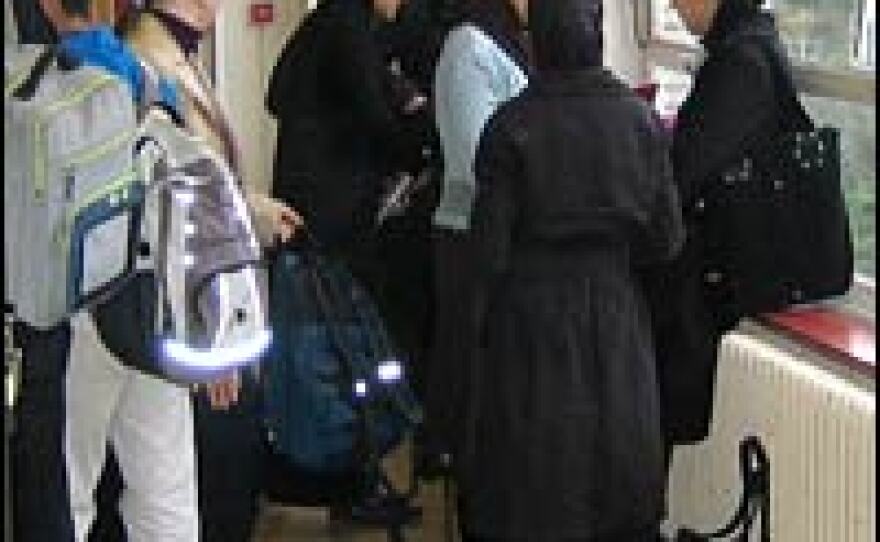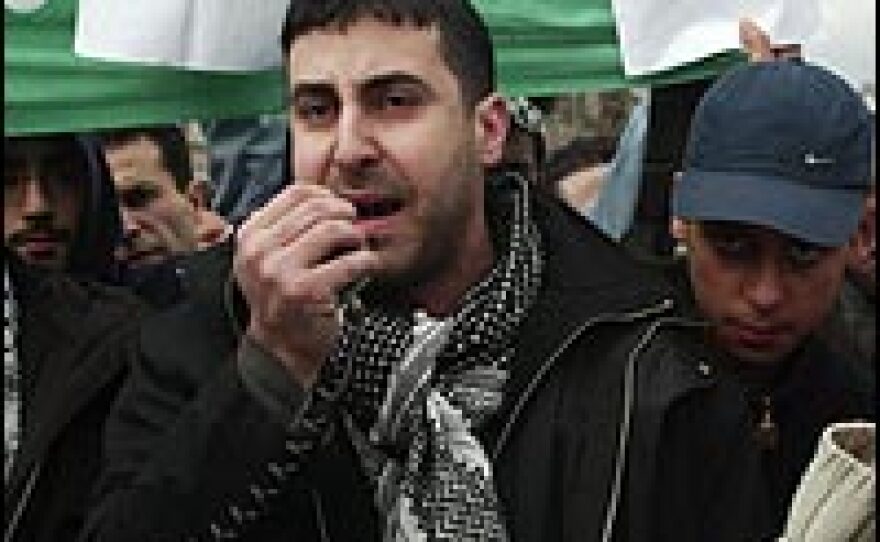


Anti-immigrant sentiment is spreading across Europe, boosting support for populist, right-wing parties. One of the most successful is in Flanders, the Dutch-speaking region of Belgium. Backers of the party, known as Vlaams Belang (Flemish Interest Party) criticize Muslim immigrants for failing to assimilate.
In the Vlaams Belang's stronghold of Hoboken, on the outskirts of Antwerp, the party soared in local elections last month. It won 41 percent of the vote, far ahead of all other parties.
Sitting at the bar of a smoky cafe, school bus driver Eric Delawer says this working-class town used to vote socialist. But in recent years, with the influx of large numbers of Muslim immigrants, he says the people of Hoboken have turned to Vlaams Belang.
"The immigrants don't integrate," he says. "They separate themselves from us. They want to stay among themselves. I say, if they don't adapt to our customs, the only option is to send them back to their home countries."
In the nearby marketplace, an elderly woman, Therese Muns, says problems with immigrants and law and order are closely linked.
"We are scared," she says. "...we are afraid to go out at night. You have to watch your purse and money... When you walk down the street, they don't step aside, they don't have respect for older people, it is not like it used to be."
It's not just the indigenous Flemish population that's feeling scared.
At Koninjlik High School, where most girls wear headscarves, the student body is nearly 100 percent from immigrant backgrounds.
"I don't go anywhere," says Said Boumazoughe, 19. "I just stay here in the neighborhood..."
The student was born here of Moroccan parents. He wants to continue his studies and become a teacher, but he feels uncertain about his future.
"The reaction of the people who vote for Vlams Belang, that makes me scared because I cannot trust them," Boumazoughe says.
His social studies teacher, Sarah Van Leuvenhaege, says this school is officially called a "concentration" school. She calls Hoboken's other high school a "white" school. It has only ethnic Flemish students.
"I don't mind teaching kids from Morocco or Turkey," she says. "But I do mind that my class is not representative... of Belgian society. That is a problem. They are only hearing stories and things from their own societies."
Growing mutual suspicion and the gulf between the Flemish and immigrants' parallel societies are the pillars of Vlaams Belang's propaganda.
"We are not in favor of the famous multicultural society," says Filip Dewinter, the party's leader.
"We do not have a problem with legal immigrants if they are willing to assimilate to our culture, our way of life, our values...." he says. "But we can't allow that they come to our country, that they come to Europe, and they keep their own culture, their own religion -- Islamic religion -- which is not always compatible with our way of life, our culture."
When Dewinter speaks of culture, he means Flemish -- not Belgian. In fact, the party's other big issue is a demand for separation from the poorer, less-productive French-speaking part of Belgium, which is seen as more laissez-faire toward the influx of Muslim immigrants.
Stefaan Walgrave, a professor of political science at the University of Antwerp, says that the party's base used to be working-class, but it has now become mainstream.
Vlams Belang is also the biggest political force in Flanders. But it's stigmatized by all the other parties which have formed an unlikely coalition whose only common cause is keeping the far right out of power.
Tuur Van Wallendael, of the ruling Socialist Party, acknowledges that the establishment boycott does not prevent the pariah's message from getting through.
"We made immigration law more strict..." he says. "There are no new immigrants coming into this country legally… we simply say no."
The government has also stiffened its anti-crime policy, making it harder to get early prison release. Prisons are full, and three-quarters of inmates are of immigrant backgrounds.
The ruling coalition is also introducing measures to ensure immigrants' integration -- such as required language and civic culture courses.
This new emphasis on assimilation to Flemish society and culture infuriates Muslim activists.
Lebanese-born Dyab Abou Jahjah founded the Arab European League to defend Muslims' traditions and religious rights. He justifies Muslim immigrants resorting to violent protest when they feel oppressed.
"When you don't give them that full citizenship, then they flip as a citizen should, and they throw Molotov cocktails and they throw stones...."
Copyright 2022 NPR. To see more, visit https://www.npr.org. 9(MDAzMjM2NDYzMDEyMzc1Njk5NjAxNzY3OQ001))







